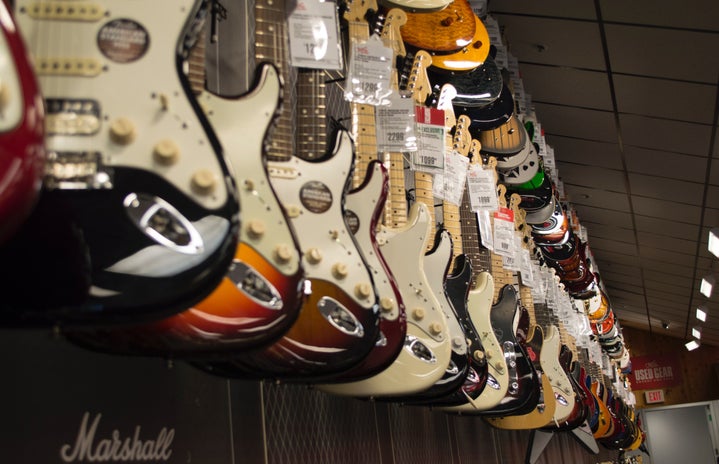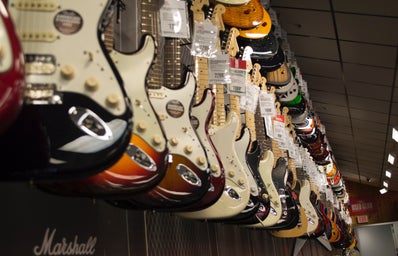R&B star Yuna has been cutting her teeth on the music industry for years. Since releasing her first studio album, Decorate, in 2010, she’s gone on to sign on record companies in both Malaysia and America, and she’s managed to reach her first RIAA certification this year. On her first album, Yuna’s voice sang soft and sweet with accompanying lush electronic backdrops. Since then, she’s undulated between experimental electronic and warmer R&B styles. As her music has become more popular in the West, Yuna’s continued to play with genre. More importantly, she’s gone from being consistently soft and sweet to being louder, more confident, and more sultry. As Yuna approaches the end of the first decade of her career, she’s mastered how to pack dynamic emotions into her albums, and her summer 2019 release Rouge is her most impressive work to date.
Image via Yuna’s Instagram
Rouge opens with “Castaway,” which begins with a swelling orchestral note, before evolving into punchy rhythm guitar, with R&B bass and drums. The song recounts the dissolution of a relationship, with the lyrics “honestly, you didn’t see the best in me” hitting me hard every time. It also features a brief bridge by Tyler the Creator, which marks one of the more notable rap sections on the album. “Blank Marquee,” which features G-Easy, is a smooth piano laced dance track that feels like the tail-end of disco era. By far, my favorite song on the album is “(Not) The Love of My Life,” which is a sultry and pulsing electronic track.
One of my gripes with the album is how seven out of the eleven tracks feature a guest performer and their own verses. This would theoretically lead to diverse collaborations, but usually only distracts from Yuna’s own strong melodies and vocals.
I think it’s a fair generalization to say that all albums are frontloaded with the best tracks before they reach a more uneven middle. “Teenage Heartbreak” is slow and minimally orchestrated. The following track, “Pink Youth,” is another one of my favorite tracks, but considering how it’s more quickly paced and upbeat than the tracks that sandwich it, I think it belongs more so at the beginning of the album. Then Rouge continues to hit us with a slow track, followed by a fast track and then a slow track again. This is a classic formula that’s worked before–think Wham’s Make it Big, where the tracklist was fast then slow then fast–but it gives me whiplash on Rouge. The album would be stronger if it were more consistently upbeat.
Image via Yuna’s Instagram
The seventh track, “Likes,” has really grown on me as I’ve re-listened to the album. The song is about her persona as an Instagram-based performer, singing for “likes.” While this premise may seem simple, the song evolves into a list of ways that both the Eastern and Western music industry misunderstand her. She sings, “Oh, she doesn’t smoke, she doesn’t show her skin, I heard she doesn’t drink, who does she think she is, what is that on her head? Oh, she Muslim, why is she showing her neck in public, I don’t like that, does not make sense to me.” “Likes” is about being caught between cultures but ultimately deciding to play by your own rules.
The starts finishing up with “Does She,” a jangly soft pop love song that features Jay Park and is one of the stronger collaborations on the album. It’s seductive in its restraint and the way the instrumentation pushes back and forth to create tension before flowing smoothly into the chorus. “Forevermore” features a more Malaysian pop sound with bouncing drums. The album concludes with the short “Tiada Akhir,” which is the first time that I’ve heard Yuna sing in Malay on a western album. It features a backdrop of rain, strong piano, and soft vocals, and invokes an intense sense of yearning and loss. It’s a memorable end to a fantastic album.
Final Verdict: Rouge is Yuna’s strongest and most versatile work to date as it weaves its way between pulsing dance music and smooth R&B.
Top Tracks: “(Not) the Love of My Life,” “Pink Youth,” “Likes,” and “Tiada Akhir.”


